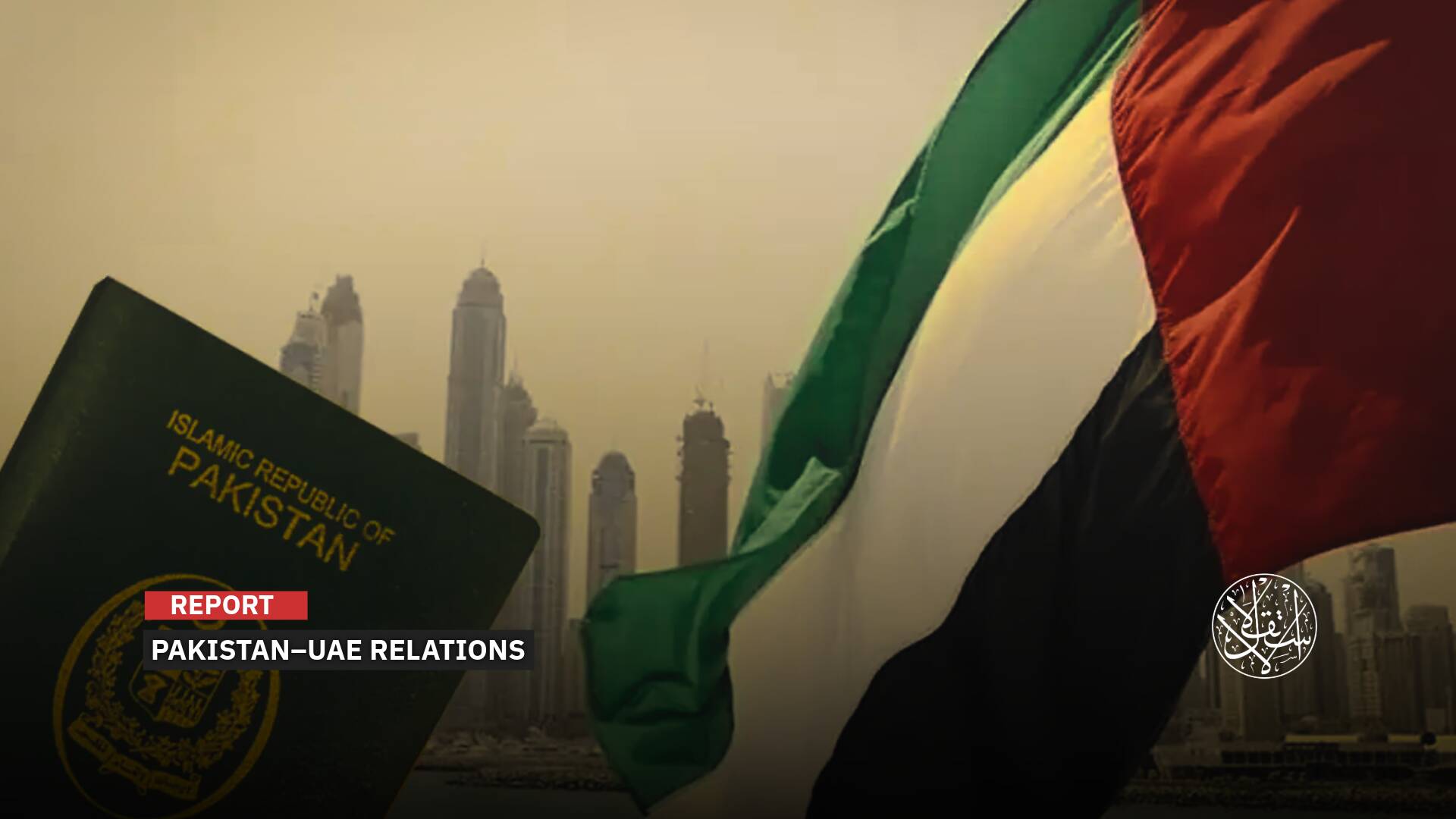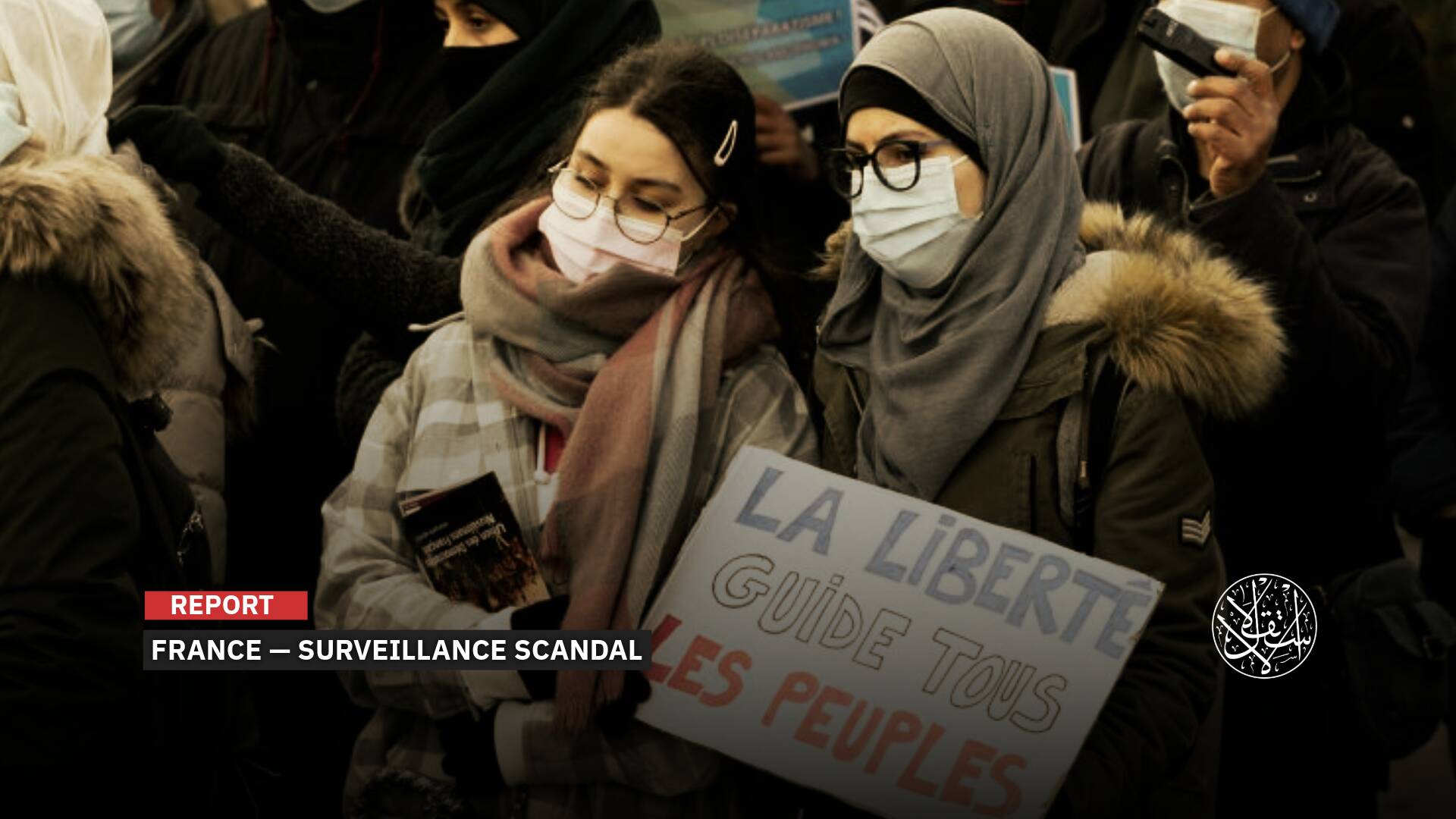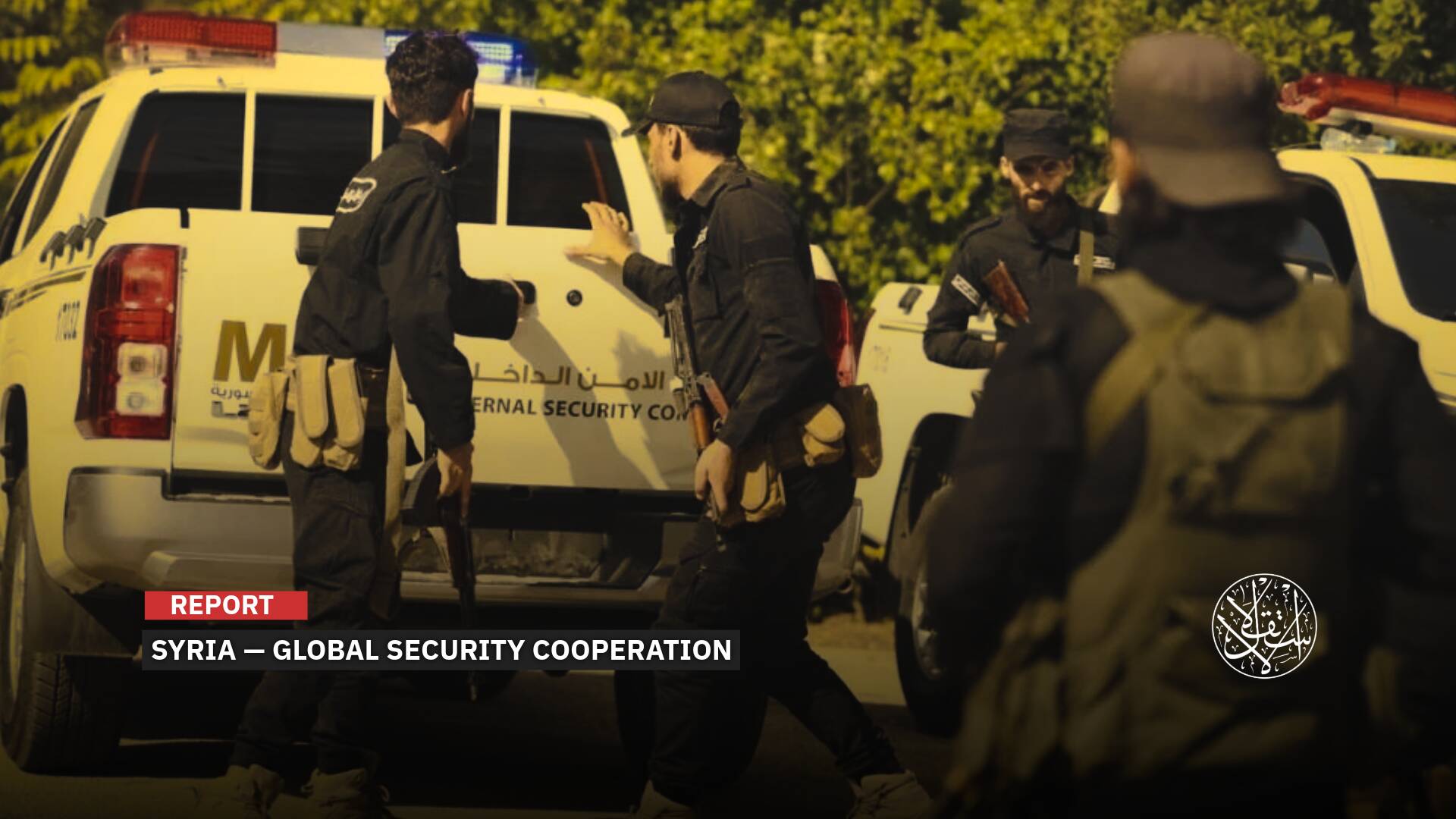Angry Greece: How It Turned from a Safe Haven into a No-Go Zone for Israelis
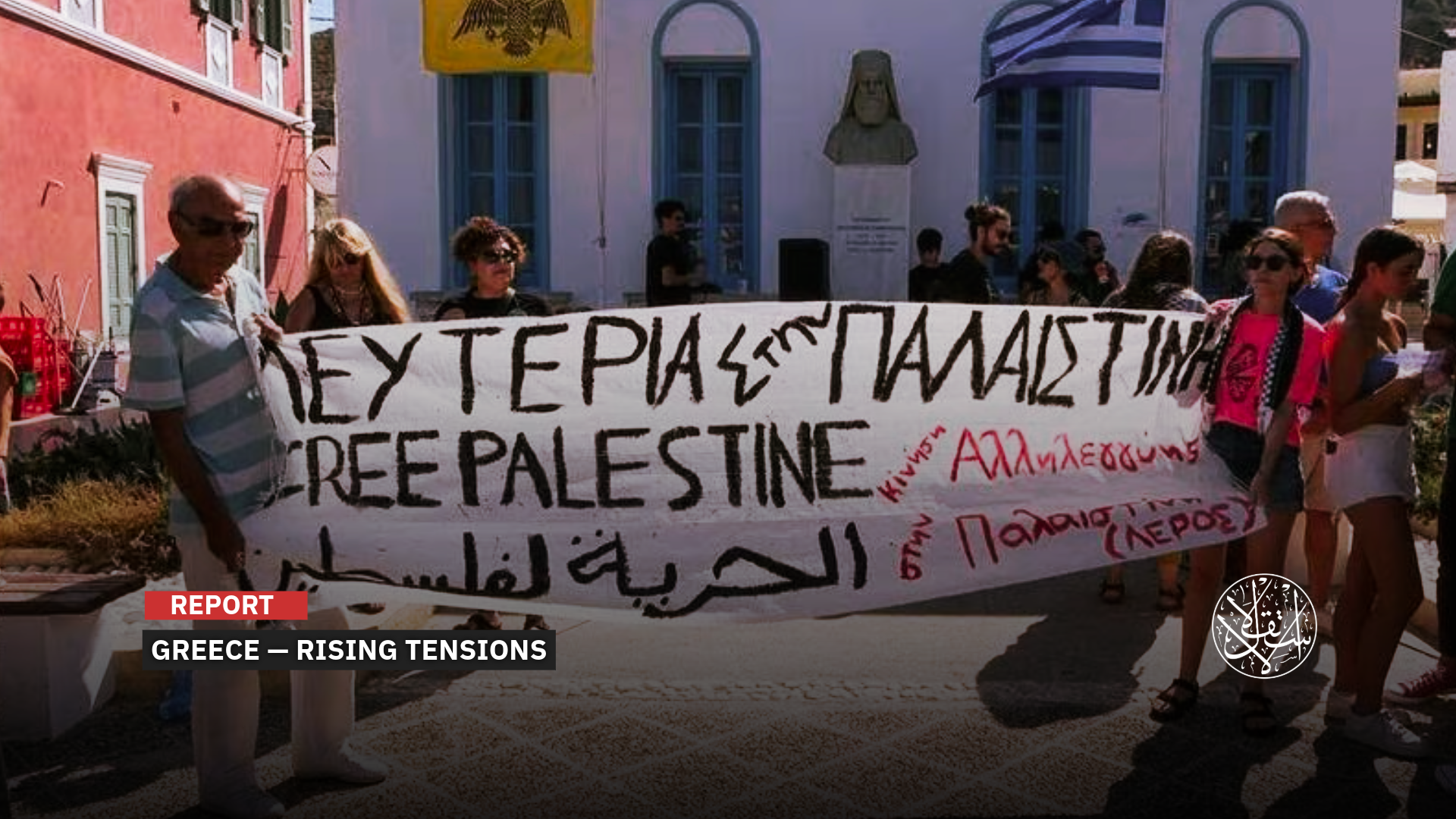
“We don't need lessons in democracy from those who kill civilians,” the Athens mayor said.
Greece has, at last, shifted from being a sun-drenched haven where Israeli tourists were welcomed with warm smiles, to a country whose towns and islands now bristle with anger and rejection.
Beaches once celebrated by Israelis for their crystal waters and easy hospitality have become stages of protest, where public fury intertwines with a profound solidarity for Palestinians.
In the streets of Athens and across its famed islands, chants of condemnation have risen, accompanied by banners bluntly declaring, “You are not welcome.”
The message, carried on the backdrop of Gaza’s destruction and hunger, could hardly be clearer.
On a Knife-Edge
For months, Greece has been swept by a rising tide of anti-Israel protests, reaching a climax with the announcement of the “March to Gaza” movement, a coalition of left-wing parties, which called a nationwide day of action on August 10, 2025.
The day saw slogans unfurled across islands and tourist hotspots, rejecting any attempt to turn the country into “a haven for the soldiers of occupation and murderers,” and denouncing what protesters described as “the genocide of the Palestinian people, backed by Western powers and the Greek government.”
This mobilization followed a string of demonstrations that had already shaken some of Greece’s most famous islands, from Syros and Rhodes to Crete.
Some protests even succeeded in blocking Israeli cruise ships, most notably the interception of the Crown Iris in Syros on July 30, 2025, an incident that prompted the authorities to deploy special units, bypassing the local police, to break up the demonstrations.
The move was aimed at preventing a repeat of what the Israeli press itself described as the protesters’ “embarrassing success” in showing solidarity with Palestine.
The crackdown has already led to arrests under Greece’s so-called “anti-racism law.”
Alongside the street protests, walls in several cities and islands have been plastered with posters and banners denouncing “Israel” and its army, urging locals not to welcome Israeli tourists.
The atmosphere prompted “Israel’s” foreign ministry to raise its travel advisory for Greece on August 8, warning citizens to exercise “caution and vigilance, particularly on the islands.”
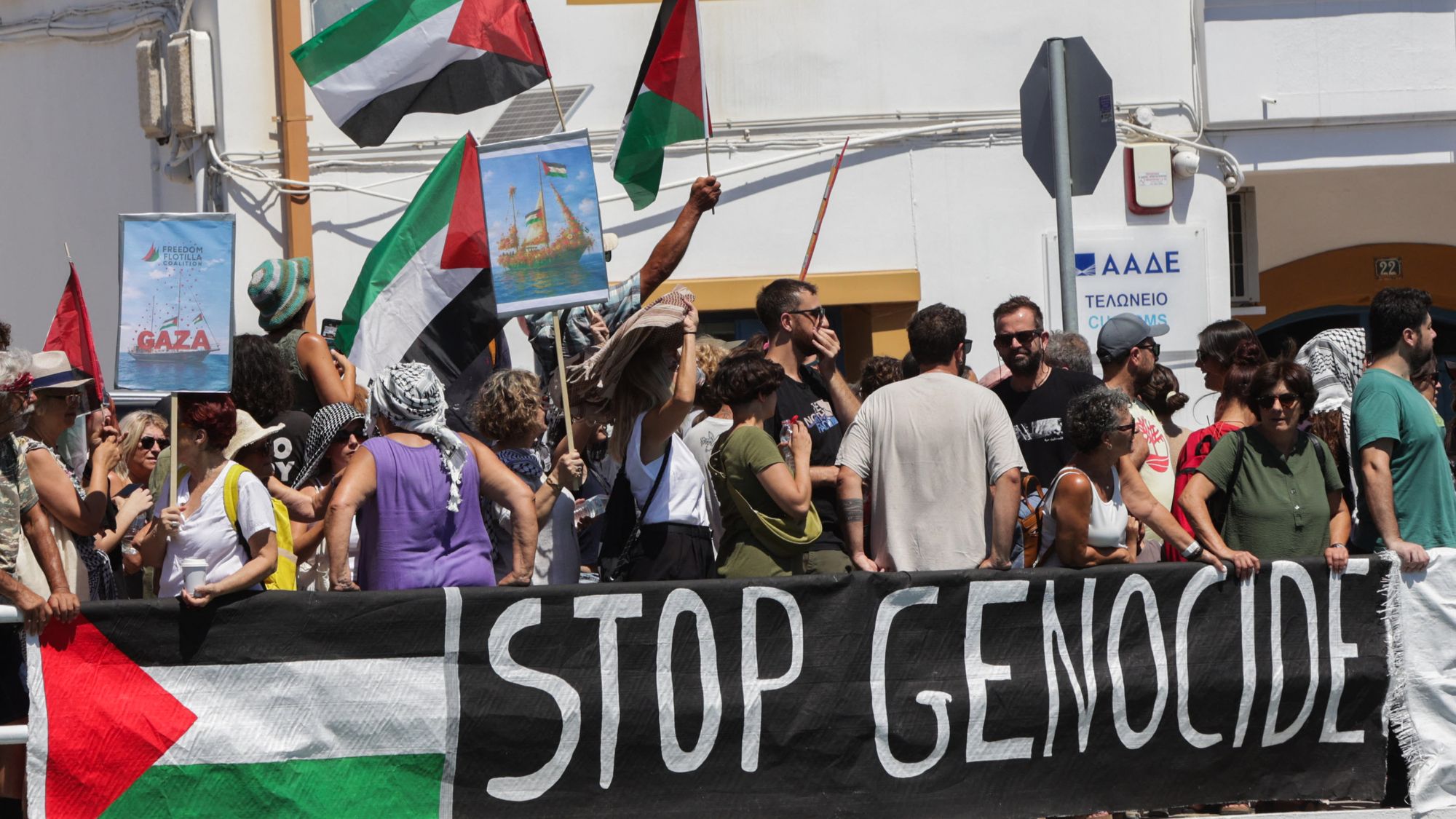
Polarization and Pressure
The movement behind the protests insists that Greece is “not just a holiday destination but a country with a moral stance on Palestine,” urging that its beaches and tourist sites be turned into arenas of solidarity.
By contrast, the Jewish community and several Jewish organizations in Greece have voiced concern over what they describe as a “rise in antisemitism.”
The Israeli foreign minister, Gideon Sa’ar, has meanwhile phoned his Greek counterpart, Giorgos Gerapetritis, to register “Israel’s” displeasure, even as pro-Palestinian activists stress that their campaign is “a political act of solidarity against Israeli policies, not against Jews.”
But the crisis extends beyond politics. Tourism, the backbone of the Greek economy, has become a decisive pressure point.
Each year, Greece welcomes millions of visitors, with Israelis making up a significant share.
In 2024, around 621,000 tourists arrived from “Israel,” according to the Greek tourism promotion body INSETE, roughly 1.7% of the total number of visitors that year.
Although reports suggest only a slight drop in arrivals from “Israel” over the past month, the domestic debate is sharpening: how to balance the right to protest and freedom of expression with the need to protect Greece’s reputation as a safe destination for all.
According to Greece’s tourism promotion body, the number of airline seats from Israel to Greece has seen a marked decline over the summer.
From the start of August 2025 to just before the middle of the month, the drop reached 3%, roughly 7,000 seats, compared with the same period in 2024.
Tension in Major Cities
At the start of August, the Hebrew-language newspaper Yedioth Ahronoth published an extensive report on rising tensions on the Greek island of Lesbos, which in recent years had become a destination for hundreds of Israelis seeking a quiet and affordable lifestyle.
Since the outbreak of “Israel’s” military campaign in October 2023, the atmosphere has shifted dramatically.
Posters urging locals not to welcome Israeli visitors have appeared, alongside doctored images depicting Prime Minister Benjamin Netanyahu shaking hands with the Nazi leader Adolf Hitler.
Some messages have even accused Israelis of attempting to transplant the settlement model from the West Bank onto the Greek island.
Some Israelis on the islands have begun considering leaving, while others are trying to hold their ground amid what they describe as an “atmosphere of hostility.”
In the heart of Athens and other city districts, tensions have escalated, with reports of verbal and physical attacks on Israelis simply for speaking Hebrew in public.
In one incident, an Israeli was forced to take refuge inside a restaurant to escape assailants, while graffiti denouncing Israelis has appeared on hotels and restaurants owned by them, and some properties have been targeted with Molotov cocktails.
On certain beaches, local Greek residents have asked Israeli tourists to leave, and in other cases, visitors have been pelted with stones or vegetables.
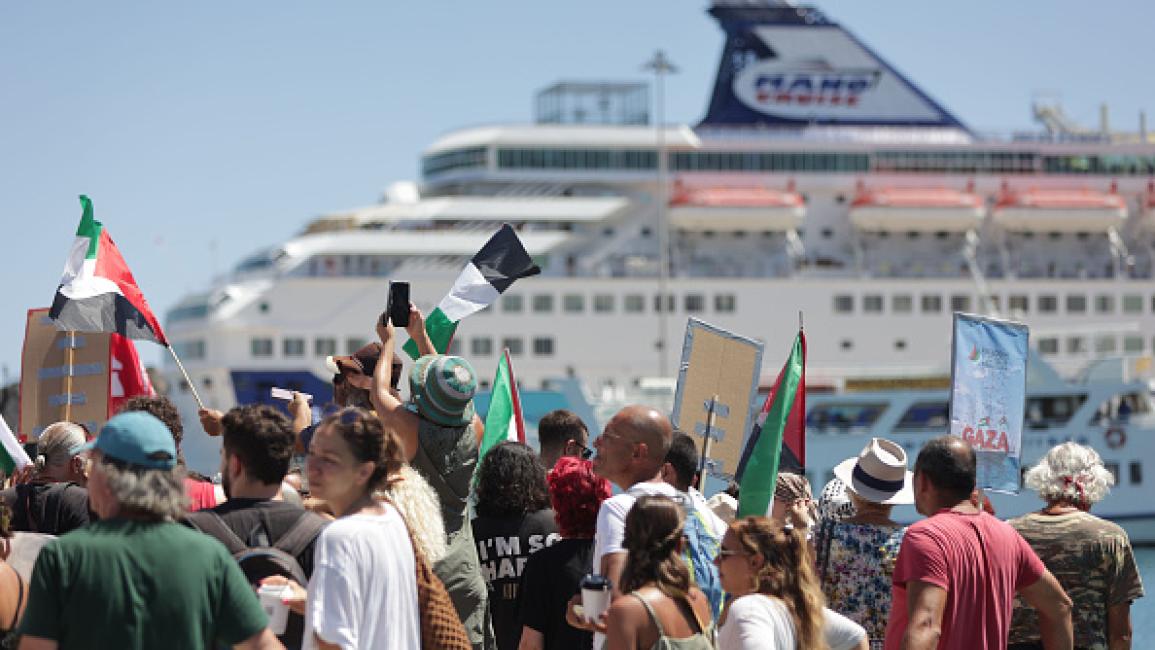
Hostile Sentiment
Although the Greek government under Prime Minister Kyriakos Mitsotakis maintains good relations with “Israel,” the situation on the ground, particularly in districts such as Exarcheia in Athens, appears far more complex, with hostility toward Israelis on the rise.
Israeli investors and travel guides in Greece say that demand for Israeli tourism is beginning to feel the impact, according to the Hebrew-language Times of Israel on July 31, 2025.
They noted that conversations on the streets have shifted: instead of restaurants and entertainment venues, the focus is now on hostile posters and a growing wariness of carrying religious or national symbols.
On August 6, 2025, The Ministry for Diaspora Affairs and Combating Antisemitism issued a warning over the escalating protests in Greece.
Israeli citizens were advised to avoid more than 25 sites across the country, most of them major tourist destinations and well-known islands.
The advisory came amid a striking rise in public displays of solidarity with Palestine across Greek streets, particularly in Crete’s main cities, including Heraklion, Chania, and Rethimno, and even in some rural areas.
Walls and street columns were plastered with a flood of banners and slogans calling for the liberation of Palestine and accountability for “Israel.”
Images of Netanyahu under the word “Wanted” in both local languages and English have circulated, alongside posters celebrating Gaza and the Palestinian keffiyeh.
Political messages on banners appear in multiple languages, carrying slogans such as, “This is not a war […]this is genocide,” “Curse NATO,” and “Israeli soldiers not welcome.”
These recurring scenes across Greek cities and islands reflect the widening scope of public anger, transforming into a sustained symbolic and on-the-ground campaign that places Israeli tourists at the center of a heated political debate during the peak of the summer holiday season.
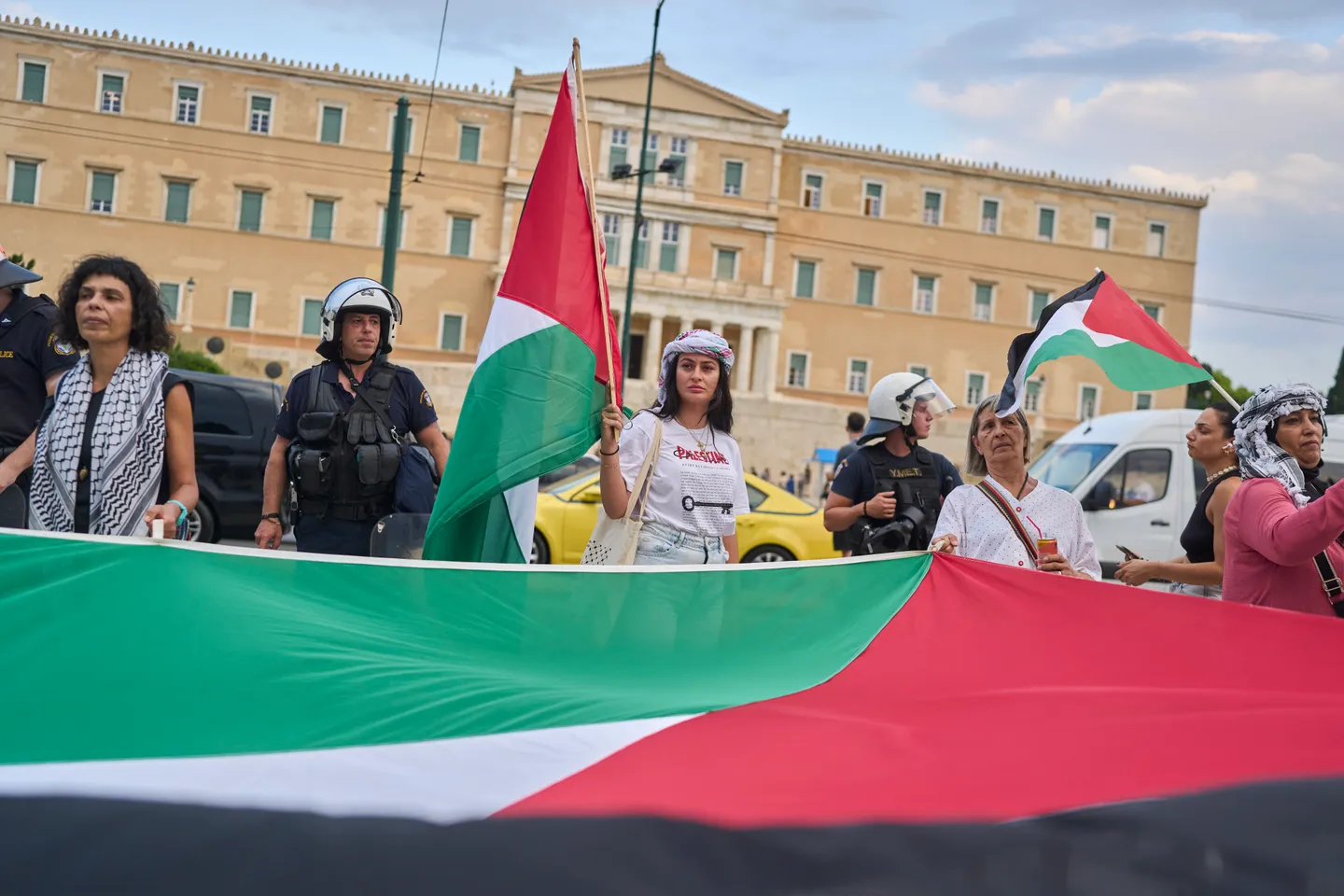
Athens City Council
The situation escalated further when the Israeli ambassador to Athens, Noam Katz, received a sharp response from the city’s mayor, Haris Doukas.
After Katz criticized graffiti and writings he deemed “antisemitic” across the city streets, Doukas fired back in pointed terms reported by the Hebrew media.
On August 3, 2025, he said Athens is “the capital of a democratic country that respects its visitors and upholds its citizens’ right to freedom of expression.”
“As the city's municipal authority, we have demonstrated our active opposition to violence and racism, and we do not accept lessons in democracy from those who kill civilians and children in food lines, from those who lead dozens of people to death in Gaza every day, from bombs, hunger and thirst,” he added.
According to Doukas, “It is appalling that Mr. Ambassador (Noam Katz) focuses only on graffiti, which is apparently being erased, while an unprecedented genocide is being carried out in Gaza.”
Doukas added, with a hint of irony, “It is also worth noting that over the past year (2024), the number of Israelis obtaining a Greek Golden Visa rose by more than 90%.”
His remarks came in response to an article by Katz in a local Greek newspaper, in which the ambassador expressed “discomfort” among Israelis living in or visiting Athens.
Doukas also highlighted the prevalence of graffiti and symbols hostile to “Israel”, particularly in the Kypseli area north of the capital, where many Israelis reside.
The ambassador said the embassy is monitoring the phenomenon “closely,” noting that some of the graffiti appeared on buildings inhabited or frequented by Israelis.
The exchange highlighted the growing gulf between public sentiment in Greece and the official Israeli position, at a time when “anti-Israel” demonstrations and protests continue to intensify in response to the crimes in Gaza.
Spaces that were once popular destinations for Israeli tourists have been transformed into arenas of political contention and symbolic confrontation in the heart of the Greek capital.



